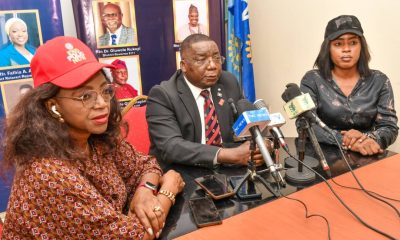News
Ex-Minister Agba lauds Tinubu on tax panel, says Agenda 2050 clear on Nigeria’s destination in 30 years time

African Telescope reports that former Minister of State for Budget and National Planning, Prince Clem Ikanade Agba, has said that Nigeria’s Agenda 2050 – a perspective plan designed to transform the country into an “upper-middle income country” with a significant improvement in per capita income – had already identified and clarified where to be in 30 years’ time and how to get there.
Agba spoke on Thursday in Osogbo while delivering a paper titled: “Strategic thinking for progressive governance in the 21st Century”, at the 22nd meeting of the National Council on Development Planning (NCDP), in which he commended President Bola Ahmed Tinubu for setting up a committee to reform the nation’s tax system.
He said that the perspective plan (Nigeria Agenda 2050) aimed to fully engage all resources, reduce poverty, and achieve social and economic stability.
According to him, “It also targets developing a mechanism for achieving sustainable environment consistent with global concerns about climate change,” adding that “the plan therefore presents the road map for accelerated, sustained and broad-based growth as well as provides broad frameworks for reducing unemployment, poverty, inequality, and human deprivation.”
Agba, who supervised the development of the National Development Plan (NDP) 2021-2025 and Nigeria Agenda 2050 as minister of state for budget and national planning, said that the path to that goal would pass through six Medium Term National Development Plans (NDP), namely NDP (2021-2025) (already developed and published) and subsequent national development plans covering (2026-2030), (2031-2035), (2036-2040), (2041-2045), and (2046-2050).
According to him: “The first of the medium-term plans, named NDP 2021-2025, is to make Nigeria a country that has unlocked its potential in all sectors of the economy for a sustainable, holistic, and inclusive development.
“Specifically, the Plan aims to generate 21 million full-time jobs and lift 35 million people out of poverty by 2025; thus, setting the stage for achieving the government’s commitment of lifting 100 million Nigerians out of poverty in 10 years.”
He said that having set the future agenda through the above plans, the next step was to ensure effective implementation, monitoring and evaluation, and achieving the planned result.”
“To achieve these, we need to address binding domestic growth constraints through creating the needed enabling environment for sustainable economic growth and development to allow the private sector to drive the economy.
“The strategy to create the needed enabling environment for sustainable economic growth and development is contained in Volume III, which is the legal and legislatives imperatives. This volume includes 18 laws that need to be passed or amended and 10 policies for effective implementation of the NDP, 2021-2025,” he stated.
Agba said that there was an urgent need to resubmit and ensure the passage of “The Development Planning and Project Continuity Bill,” which had been in National Assembly undergoing legislative process for enactment, stressing that this would improve plan implementation majorly affected by political and policy changes.
He listed other steps to take to include strengthening the link between the Plan and Annual Budget and improving inter-sectoral collaboration, in addition to ensuring coordinated and harmonised efforts with states and creating the enabling environment for increased private sector investment.
Agba also underscored the need to ensure diligent implementation of the plan especially Volumes I, II & III, explaining that whereas “Volume I contains the policies with targets and the required investment; Volume II has the costed priority programmes and projects, while Volume III is the legal and legislatives imperatives.”
He said there was need for a mid-term review of the performance of NDP 2021-2025, stressing that this would focus on the degree to which planned results were on target, and the areas that might require improvement.
“Mid-term review should be carried out before the development of NDP 2026-2030. The report should guide the development of the next plan. In fact, the mid-term review should start NOW,” he added.
The immediate past minister also posited that for effective implementation of the plan, there was need to implement the National Monitoring & Evaluation Policy already approved by Federal Executive Council (FEC), “increase the monitoring and evaluation process to ensure that we are not only getting value for money but that we are also strategic in resource allocation; ensure that the Plan Implementation Unit already set up by the Ministry is adequately resourced, running and efficient; and, this also needs to be replicated at the Sub-national level.”
Stressing the importance of inspecting what one is expecting in order to achieve the best result, he said the government must ensure that Eye Mark App of the Ministry and the iMonitor Platform of the Budget office were up and running.
According to him: “Feedbacks collated from citizens should be used to monitor and enhance project delivery, as the use of feedback will elicit citizens and Civil Society Organisations’ (CSOs’) participation in tracking progress and performance of government’s interventions.”
Meanwhile, Agba took the opportunity of the occasion to commend the President Bola Ahmed Tinubu in his paper for setting up a committee to reform Nigeria’s tax system, for enhanced collection and with a target of at least 18% tax-to-GDP ratio within the next 3 years without stifling investment or economic growth.
He said that “This is part of a push by government to curb its reliance on borrowing to finance public spending. This target is seemingly aggressive, but all efforts should be made to achieve it.”
He cited a report by the World Bank that “tax revenues above 15 percent of a country’s GDP are a key ingredient for economic growth and, ultimately, poverty reduction,” pointing out that “Nigeria’s Revenue-to-GDP ratio of 10.86% is low when compared to 21 percent in Angola, 28 percent in Botswana, 13 percent in Ghana, 16 percent in Kenya, 19% in Senegal, and 28% in South Africa.”
News
Timi Frank To Tinubu: Abuse of Military Ranks Endangers Democracy, Invites Coup Temptations
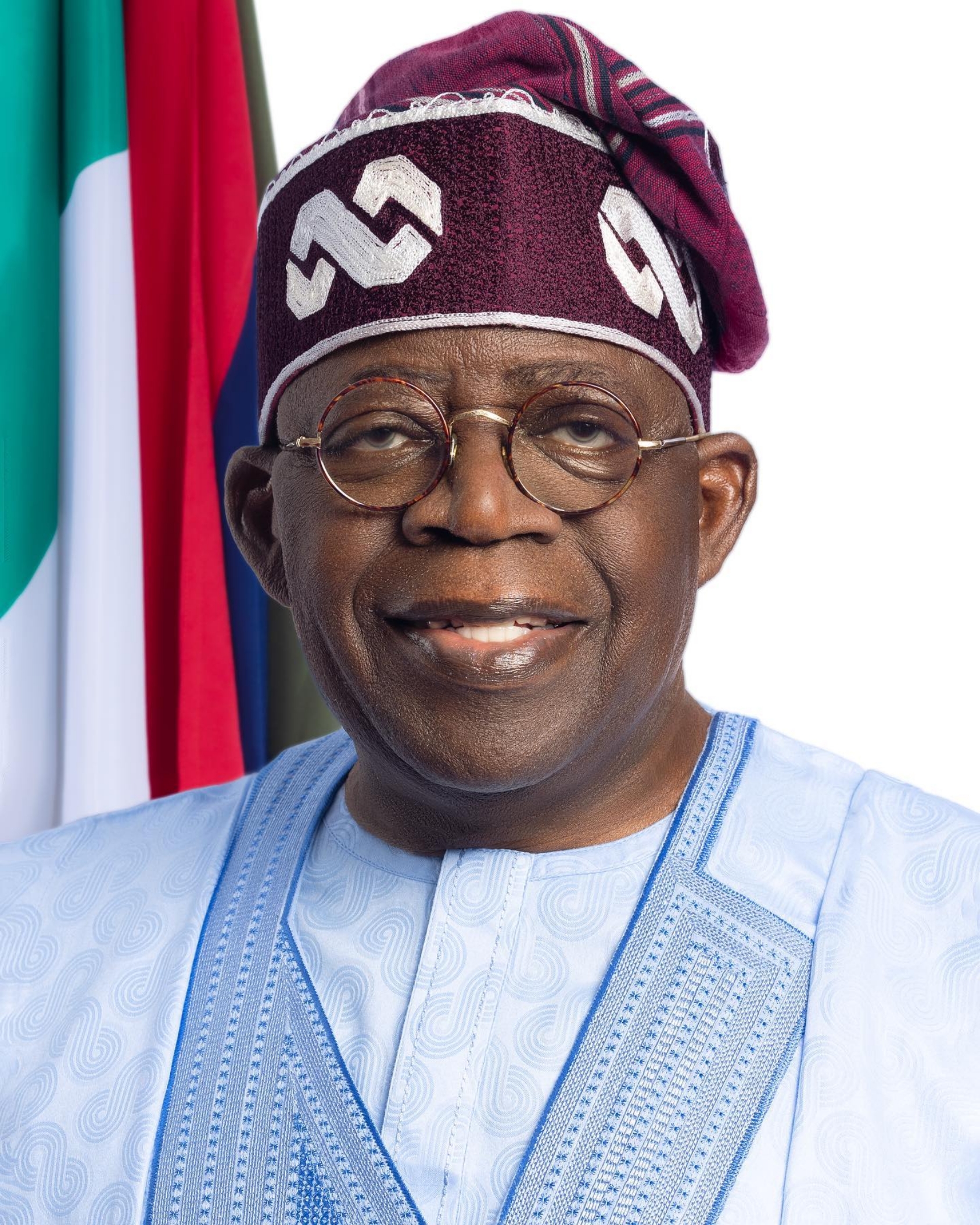
From Adeko Ukpa, Abuja
Abuja, Nigeria — Political activist and international affairs leader, Comrade Timi Frank, has issued a stern warning to President Bola Ahmed Tinubu over reported actions that point to the politicisation of the Nigerian Army, cautioning that any breach of military tradition, hierarchy and professional standards poses a grave danger to Nigeria’s democracy and national stability.
Frank, a former Deputy National Publicity Secretary of the All Progressives Congress (APC) and currently ULMWP Ambassador to East Africa and the Middle East as well as Senior Advisor to the Global Friendship City Association (GFCA), USA, described reports of a special and accelerated promotion of President Tinubu’s Aide-de-Camp (ADC) to the rank of Brigadier-General, barely months after elevation to Colonel, as deeply troubling and unacceptable if proven true.
“The Nigerian Army is not a personal guard unit of any President. It is a national institution governed by time-tested rules, traditions and professional standards.
Senior military ranks, especially the rank of General, are earned through years of service, sacrifice, command experience, rigorous training and competitive assessments.
They are not political rewards,” Frank said.
He stressed that promotions outside established procedures send a dangerous and demoralising signal to career officers who have devoted decades to service under strict institutional discipline.
According to him, such actions weaken command authority, erode morale and damage cohesion within the ranks and file.
Frank warned that history, particularly Africa’s recent history, has shown that the politicisation and personalisation of military institutions inevitably breed resentment, frustration and indiscipline, conditions that have often preceded military breakdowns and unconstitutional interruptions of democratic rule.
“Across West Africa today, we are witnessing the consequences of weakened civil-military relations,” he said. “From Mali to Burkina Faso and Niger, military juntas emerged in environments where institutions were abused, traditions disregarded and professionalism undermined.
“Even in those countries, the leaders of military regimes exercised restraint in matters of rank, mindful of the sensitivity of military hierarchy and the backlash that follows its abuse.”
He noted that it is alien to Nigeria’s democratic practice, and unheard of even during periods of military rule, to assign or manipulate the rank of General for aides-de-camp or personal convenience.
“No former military Head of State and no civilian President in Nigeria treated the rank of General with such recklessness,” he added.
Frank rejected any justification based on constitutional authority, insisting that being Commander-in-Chief demands restraint, not arbitrariness.
“Being Commander-In-Chief is not a license to erode institutions. Democracy survives on accountability, due process and respect for established norms,” he said.
He further cautioned that exposing an officer to irregular promotion places that officer at professional risk and invites institutional backlash, while dragging the Armed Forces into political controversy.
He urged the Minister of Defence to urgently advise the President on the far-reaching implications of any decision that undermines military tradition, morale and Nigeria’s international standing.
“This does not stand in isolation,” Frank said. “It fits a troubling pattern of preferential treatment for presidential aides within the security services, raising legitimate fears about the personalisation of state power and the erosion of institutional independence.”
Frank called for: Immediate public clarification of the legal and professional basis for the reported promotion; suspension or reversal of any action that violates Nigerian Army guidelines; and a firm commitment by the Presidency to end personalised promotions and the abuse of military ranks.
He also urged civil society organisations, retired military officers and professional associations to speak out, warning that silence in the face of institutional abuse carries severe consequences for civil-military relations.
“Nigeria’s democracy has already witnessed the weakening of several institutions. The Armed Forces must not be dragged down the same path.
“Undermining military tradition fuels frustration within the ranks and file and dangerously incentivises coup plotting as a means to truncate democracy. This is a red line Nigeria must never cross,” he said.
Frank insisted that the Nigerian Armed Forces must remain professional, apolitical and governed by established rules and not personal discretion.
Arts & Life
New initiative targets emotional growth, mental wellbeing of children in Nigeria

From Adeko Ukpa, Abuja
A new chapter in child development advocacy began in Abuja on Thursday, with the official launch of the “My Child’s Psyche Initiative (MCPI),” a foundation committed to transforming the emotional and psychological wellbeing of Nigerian children.
The Initiative aims to promote emotional intelligence, psychological resilience, and holistic growth for the nation’s young generation.
The launch featured the maiden Ultimate Caregiver Enlightenment Symposium & Book Presentation, themed “United in Care: Guiding Hearts, Growing Minds.”
The event drew parents, teachers, and caregivers determined to raise emotionally balanced and resilient children in today’s increasingly complex world.

L-R Hajiya Khadijah Mohammed Isa, Wife of Former Minister of Communications, Mrs Justina Ihenacho, Child’s Righy Advocate, Mrs Ruqayya Tofa-Basheer, Founder Ummi Africa, Dr. Maryam Tukur-Shagaya, Obstetrician and Gynaecologist, Mrs Eni Ogon, Founder, Broadoaks British School, Hajiya Hadiza Yusuf, SA, Welfare and Community Engagement, North Central Development Commission.
Speaking at the event, Madam Chyna Clifford, child development advocate, children’s book illustrator, and founder of MCPI, said the Initiative was inspired by the need to understand the inner world of children, a world often filled with wonder, dreams, anxieties, and untapped potential. She noted that societal pressures frequently drown out children’s emotions, leaving questions unanswered and feelings overlooked.
According to her, this year’s symposium focused on children on the autism spectrum, providing caregivers and educators with practical strategies to better support their unique developmental and emotional needs.
Madam Clifford stressed that MCPI seeks to bridge the gap between psychology and parenting by equipping caregivers with tools, resources, and knowledge to support children’s emotional and behavioural development both at home and in school.
“Emotional intelligence must be valued as highly as academic achievement if Nigeria is to build a stable, empathetic, and progressive society,” she said.
“If we are serious about raising a generation of emotionally intelligent, morally grounded, and socially responsible leaders, we must first understand the intricacies of a child’s mind. Healing the psyche of the child is healing the future of the nation,” she added.
The launch brought together educators, mental health professionals, and caregivers for a day of learning, reflection, and practical engagement.
Dr. Adaobi Okeke, a guest speaker, delivered a session on “Learning Differences & Neurodiversity (ADHD, Dyslexia & Autism),” highlighting how parents and teachers can better support neurodivergent children both at home and in school.
She also emphasized the need to reduce stress during pregnancy as a critical factor affecting children’s neurodevelopment.
An obstetrician and gynaecologist, Dr. Maryam Tukur-Shagaya, spoke on “Postpartum Struggles and the Emotional Journey of Motherhood,” stressing the importance of supporting the mental wellbeing of new mothers, whose emotional challenges are often overlooked.
The founder of Ummi Women Empowerment Foundation (Ummi Africa), Mrs. Ruqayya Tofa-Basheer, encouraged women to prioritise self-care and work–life balance, offering practical strategies for emotional regulation in high-pressure environments.
An educationist and founder of Broadoaks British School, Mrs. Eni Ogon, highlighted the need for stronger collaboration between schools and parents to ensure children’s mental wellness is nurtured alongside academic development.
The symposium reflected MCPI’s core mission of fostering emotional resilience and holistic development at all stages of childhood.
In closing, the Initiative extended an open invitation to families, educators, and caregivers: “Come, learn, unlearn, and relearn with us – for the sake of the minds we’re nurturing and the future we’re shaping.”
With its official launch, according to the founder, MCPI has positioned itself at the forefront of national conversations on child psychology, emotional wellbeing, and the urgent need to raise a generation that is not only brilliant but also balanced, not only informed but also inspired, and not only successful but genuinely humane.
News
Timi Frank Weeps for ‘Adamawa Nine’, Demands Justice for Victims
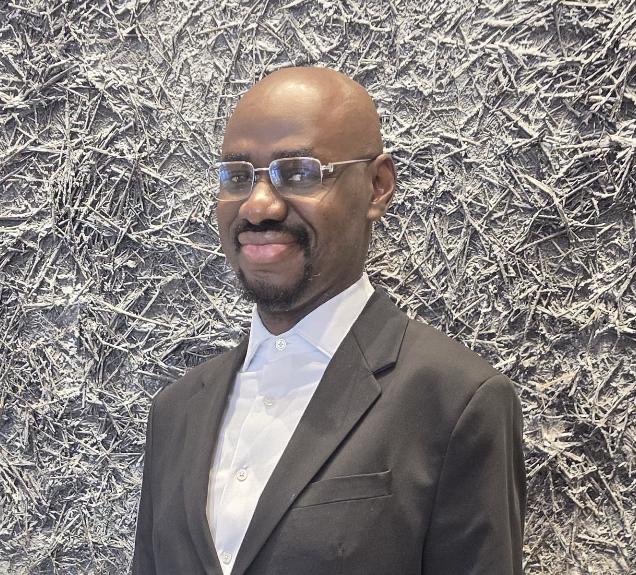
From Adeko Ukpa
Former Deputy National Publicity Secretary of the All Progressives Congress (APC), Comrade Timi Frank, has condemned in strong terms the recent killing of nine protesting women in Adamawa state by military operatives.
Soldiers had allegedly opened fire on protesting women in the Lamurde Local Government Area of Adamawa State on Monday.
Also, 51 others were said to have been hospitalised where most of them are still receiving treatment for varying degrees of gunshot wounds, many of them life-threatening.
Frank in a statement in Abuja described the killing of the nine women as “senseless, unforgivable, inhuman and avoidable.”
He noted that the victims – ordinary women, mothers and breadwinners who had stepped out only to protest the insecurity consuming their communities – were met with lethal force when all they sought was protection for their children. “Their only offence was demanding safety,” he lamented.
The incident, which has triggered widespread outrage, adds to what Frank called a mounting record of state violence and military impunity in Nigeria and across Africa.
He cited troubling statistics indicating that over 10,000 Nigerian youths have been killed or disappeared in recent years through military operations and extrajudicial actions.
“This culture of violence and unaccountability must end,” he declared, his voice breaking with emotion.
Frank rejected what he described as the government’s habit of announcing panels of inquiry that ultimately serve as “political theatre” designed to bury justice.
From the #EndSARS killings at Lekki Toll Gate to crackdowns in Cameroon, Tanzania, Kenya, Uganda and Zimbabwe, he said, those who issue shoot-to-kill orders have repeatedly escaped responsibility. “This time, we will not accept delays, excuses or another meaningless probe,” he vowed.
The ULMWP Ambassador to East Africa and the Middle East issued a set of demands he said must be met urgently.
He called for the arrest and prosecution of military officers – both those on the ground and their commanders – who played any role in what he described as the “barbaric” slaughter of the Yola Nine.
He insisted that the federal and state governments owe full compensation to the bereaved families, including scholarships for the victims’ children and long-term welfare plans to prevent the tragedy from plunging entire households into destitution. “These women must not die in vain,” he said.
Given what he termed the consistent failure of Nigeria’s justice system to punish human rights violations, Frank urged the International Criminal Court (ICC) to open investigations into military abuses in Nigeria and across Africa.
Frank who also serves as the Senior Advisor to the Global Friendship City Association (GFCA), USA, further demanded sanctions, travel bans and international prosecutions for military leaders who authorise or enable the killing of unarmed civilians.
Frank also called on the global community—human rights organisations, civil society groups, women’s coalitions and all citizens—to amplify their voices for the Yola Nine. In a direct appeal, he urged President Donald Trump and the U.S. government to speak out, demand accountability, and support international action.
“The U.S. has shown willingness to stand with oppressed African citizens. We appeal for that moral leadership now,” he stated.
He said the tragedy is more than a national wound; it is “a stain on Africa’s conscience” and a test of whether governments will continue to allow soldiers, whose duty is to protect, to open fire on peaceful citizens without consequence.
“The killing of the Yola Nine is a tragedy Nigeria must not brush aside,” he said. “Justice must be non-negotiable. Accountability must be immediate. And this barbarism must never happen again.”
-
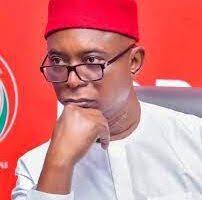
 Opinion9 months ago
Opinion9 months agoAnioma State: A Necessary Proposal Rooted in Strategic Advantage
-
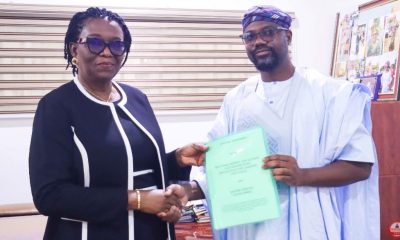
 Business & Economy1 year ago
Business & Economy1 year agoNASENI, Qietur partner to build 3000 Housing Units for Staff
-
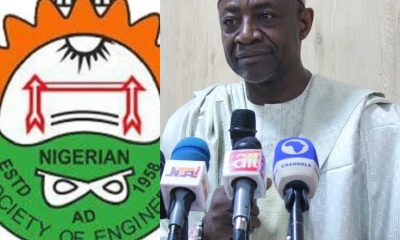
 Business2 months ago
Business2 months agoLithium boom has reshaped Nasarawa’s economy, says Prof Haruna
-
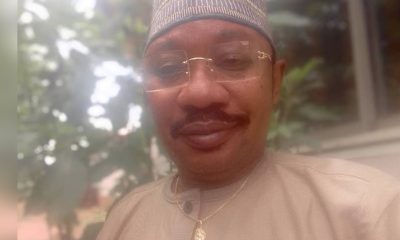
 Law1 year ago
Law1 year agoHuman Right and Law Enforcement in Nigeria: A Critical Analysis
-
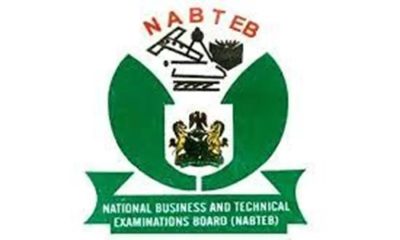
 Education3 months ago
Education3 months agoNABTEB Registrar advises automotive, locomotive Engineers to do more to diversify Nigerian economy
-

 Education6 months ago
Education6 months agoTVET will change Nigeria for good, says NABTEB Registrar
-
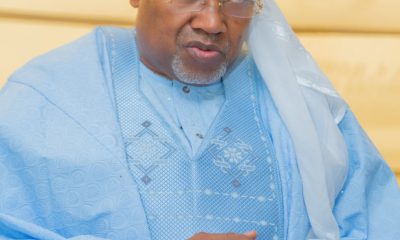
 Opinion3 months ago
Opinion3 months agoEngr. Kawu: A Heroic Homecoming for a Man of the People
-
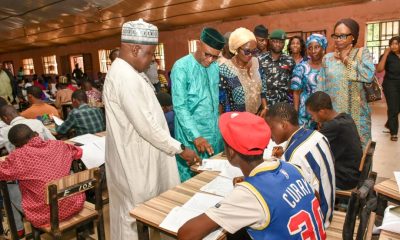
 Education6 months ago
Education6 months agoTVET: FG conducts entrance exam into FTCs for 30,000 students











